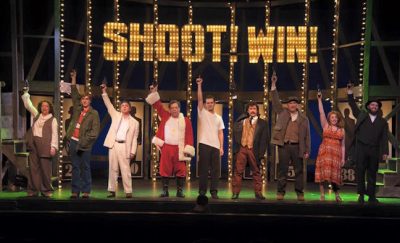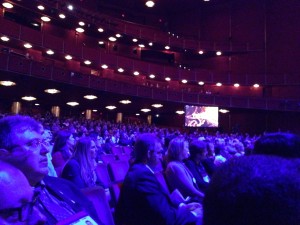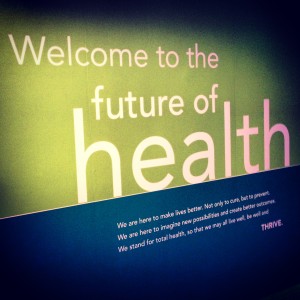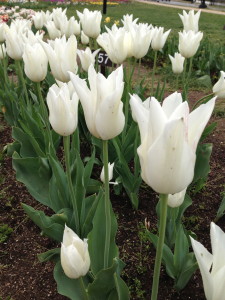Creative diversions yield fresh inspiration
I’m fortunate that I get to be creative for a living. Whether I’m writing, strategizing or executing an idea, my work demands creativity.
 But even the most creative among us needs fresh inspiration from time to time, and I found it by pursuing an avocation I’d set aside for six years: theatre. I just finished nearly three months of rehearsal and three weekends of performances as Sara Jane Moore in Stephen Sondheim’s Assassins. I’ve already written about what the show means to me, but now I find myself reflecting on the experience of the production itself and how it’s seeped into the rest of my creative life.
But even the most creative among us needs fresh inspiration from time to time, and I found it by pursuing an avocation I’d set aside for six years: theatre. I just finished nearly three months of rehearsal and three weekends of performances as Sara Jane Moore in Stephen Sondheim’s Assassins. I’ve already written about what the show means to me, but now I find myself reflecting on the experience of the production itself and how it’s seeped into the rest of my creative life.
As anyone who knows the music of Stephen Sondheim will understand, preparing and performing the show was a challenge — one that I welcomed. One reason I’m such a devotee of Sondheim’s music is the puzzles he constructs. I revel in sorting them out and finding the solutions that reveal the magic of what he’s created. Making sense of the character and the show’s structure were equally stimulating exercises, and ultimately rewarding ones. Sondheim consistently reminds me how important it is to be intentional about what we create. Everything for a reason.
But what I gained from this experience is about more than simply flexing creative muscles I haven’t used in a while. For me, being onstage requires a leap of faith and a willingness to bare my soul. It means taking risks and being brave about them, putting myself out there in a way that daily life doesn’t necessarily require — but perhaps it should.
Some of my favorite directors have taught me that a good performance is about being in the moment, one moment at a time, and being present with your fellow actors with every breath and every line of music or dialogue. While the mechanics of stage business matter, the ideal is to let all of that become second nature so you can maintain your focus on the moment you’re in, with the people you’re in it with. The sensation of “waking up” onstage to realize you’ve been fully immersed in the moment is indescribable and enormously satisfying.
The same thing is true about everyday life, and the interactions we have with people. If we’re not being present with others — if we’re not being open to the leaps of faith life requires or the courage that’s needed to face challenges head-on — there’s a good chance we could miss out on something. When it comes to creativity, we almost certainly won’t be open to taking the kinds of risks that can spark compelling new ideas.
I almost didn’t audition for Assassins. I thought I was too busy, that I needed to focus on my work, that I had been away from theatre too long to jump back in. But that would have been a terrible mistake. Because as I reflect on the experience of being part of the production, I feel more inspired than ever about my work and my life. I feel motivated to be more daring, more open, more collaborative. I’m inspired to continue stretching my creativity in new directions, even when I’m sitting at my computer.
Perhaps it’s the insight that comes from stepping outside yourself for a few hours a day to become someone else, or maybe it’s simply the jolt of energy that comes from a new experience. Whatever it is, I’ll take it and run with it. My creativity — and the work I produce as a result — will be all the better for it.
[Photo credit: Bryan Clifford, courtesy of Avon Players. I’m at left in the image, in the brunette wig.]










